Why is reading important for kids
Benefits & Importance of Reading to Children
Blog
03/03/2017
It’s undeniable that a child’s reading skills are important to their success in school, work, and life in general. And it is very possible to help ensure your child’s success by reading to them starting at a very early age. Continue reading to learn more about the top benefits of reading to children and how reading can support them for the future.
7 Benefits of Reading to Children
Whether you’re reading a classic novel or fairy tales before bed, reading aloud to children can significantly benefit your child’s life. Some benefits reading to children include:
- Supported cognitive development
- Improved language skills
- Preparation for academic success
- Developing a special bond with your child
- Increased concentration and discipline
- Improved imagination and creativity
- Cultivating. lifelong love of reading
Reading to young children is proven to improve cognitive skills and help along the process of cognitive development. Cognitive development is the emergence of the ability to think and understand; it’s “the construction of thought processes, including remembering, problem solving, and decision-making, from childhood through adolescence to adulthood” (HealthofChildren.com). It refers to how a person perceives and thinks about his or her world through areas such as information processing, intelligence, reasoning, language development, attention span, and memory.
When you begin reading aloud to your child, it essentially provides them with background knowledge on their young world, which helps them make sense of what they see, hear, and read. In fact, many educators and researchers postulate that “It is the talk that surrounds the reading that gives it power, helping children to bridge what is in the story and their own lives,” rather than just the vocalization of the words. Introducing reading into your young child’s life, and the conversations that it will prompt, helps them to make sense of their own lives, especially at a young age.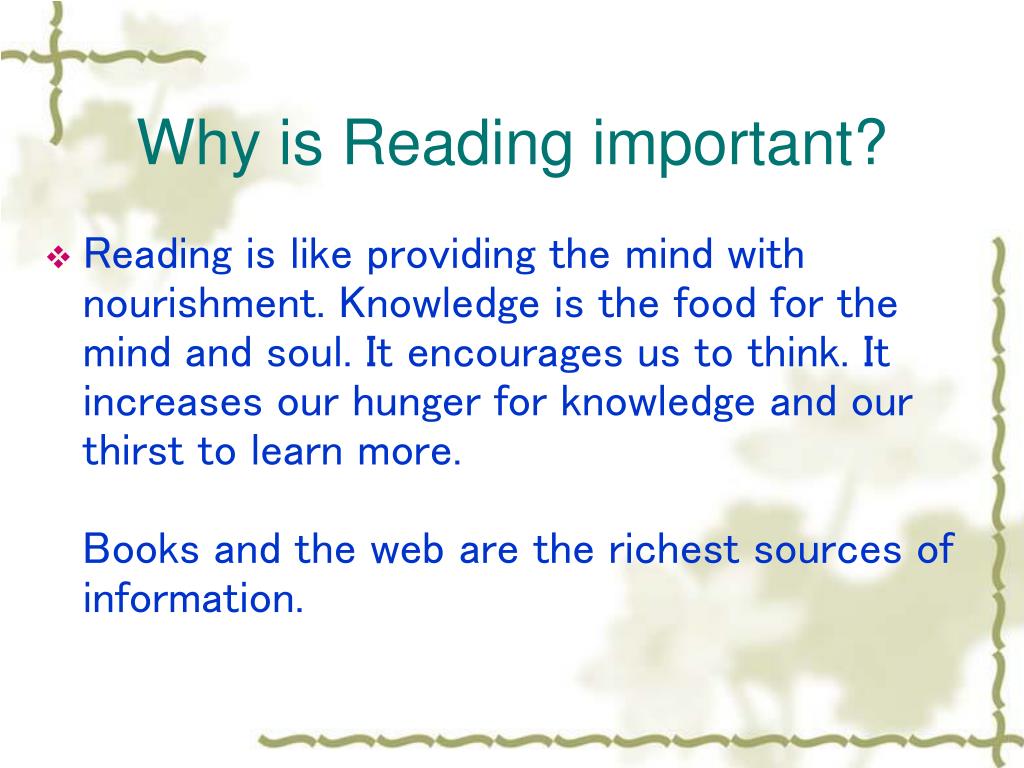
Consider this excerpt from a study on toddlers’ cognitive development as a result of being read aloud to:
“A child care provider reads to a toddler. And in a matter of seconds, thousands of cells in these children’s growing brains respond. Some brain cells are ‘turned on,’ triggered by this particular experience. Many existing connections among brain cells are strengthened. At the same time, new brain cells are formed, adding a bit more definition and complexity to the intricate circuitry that will remain largely in place for the rest of these children’s lives.”
Therefore, the more adults read aloud to their children, the larger their vocabularies will grow and the more they will know and understand about the world and their place in it, assisting their cognitive development and perception.
Improved language skillsReading daily to young children, starting in infancy, can help with language acquisition, communication skills, social skills, and literacy skills.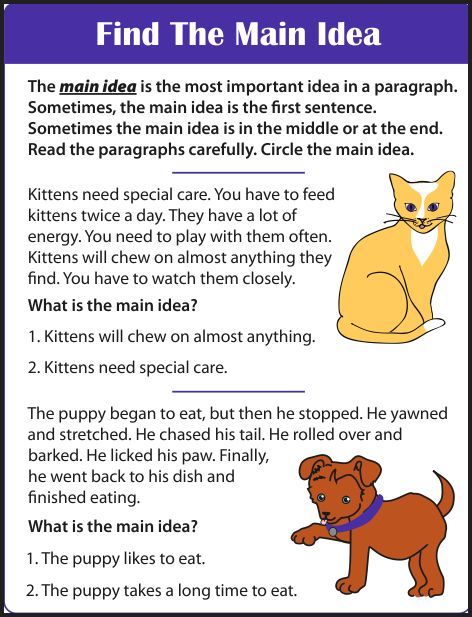 This is because reading to your children in the earliest months stimulates the part of the brain that allows them to understand the meaning of language and helps build key language, literacy and social skills.
This is because reading to your children in the earliest months stimulates the part of the brain that allows them to understand the meaning of language and helps build key language, literacy and social skills.
In fact, a recent brain scan study found that “reading at home with children from an early age was strongly correlated with brain activation in areas connected with visual imagery and understanding the meaning of language” (TIME.com)
These cognitive skills and critical thinking skills are especially important when you consider that, according to the American Academy of Pediatrics, more than one in three American children start kindergarten without the skills they need to learn to read. About two-thirds of children can’t read proficiently by the end of the third grade.
Furthermore, while a child will be able to latch onto vocabulary and language he or she hears around him or her, introducing reading into their auditory learning provides another benefit: it introduces the language of books, which differs from language heard in daily life.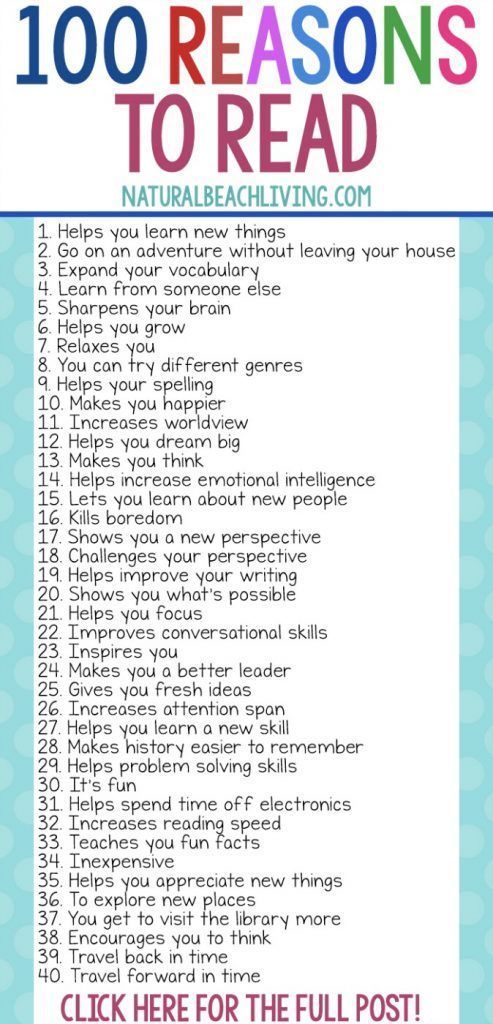 Whether it’s a children’s book or classic novel, book language is more descriptive, and tends to use more formal grammatical structures.
Whether it’s a children’s book or classic novel, book language is more descriptive, and tends to use more formal grammatical structures.
Early reading with your child is a true one-on-one opportunity for children to communicate with their parents and parents to communicate with their children. It allows children to grow their vocabulary skills with exposure to new words and listening skills they develop from hearing someone read to them that become vital to their academic success.
Studies have shown that “the more words that are in a child’s language world, the more words they will learn, and the stronger their language skills are when they reach kindergarten, the more prepared they are to be able to read, and the better they read, the more likely they will graduate from high school” (PBS.org).
Numerous studies have shown that students who are exposed to reading before preschool are more likely to do well when they reach their period of formal education. According to a study completed by the University of Michigan, there are five early reading skills that are essential for development. They are:
According to a study completed by the University of Michigan, there are five early reading skills that are essential for development. They are:
- Phonemic awareness – Being able to hear, identify, and play with individual sounds in spoken words.
- Phonics – Being able to connect the letters of written language with the sounds of spoken language.
- Vocabulary – The words kids need to know to communicate effectively.
- Reading comprehension – Being able to understand and get meaning from what has been read.
- Fluency (oral reading) – Being able to read text accurately and quickly.
While children will encounter these literacy skills and language development once they reach elementary school and beyond, you can help jumpstart their reading success by reading to them during infancy and their early toddler years.
While they won’t be able to practice fluency or phonics at that stage, they will get an earlier introduction to phonetic awareness, vocabulary and reading comprehension, all of which will set them up for success as they grow and interact with the world around them.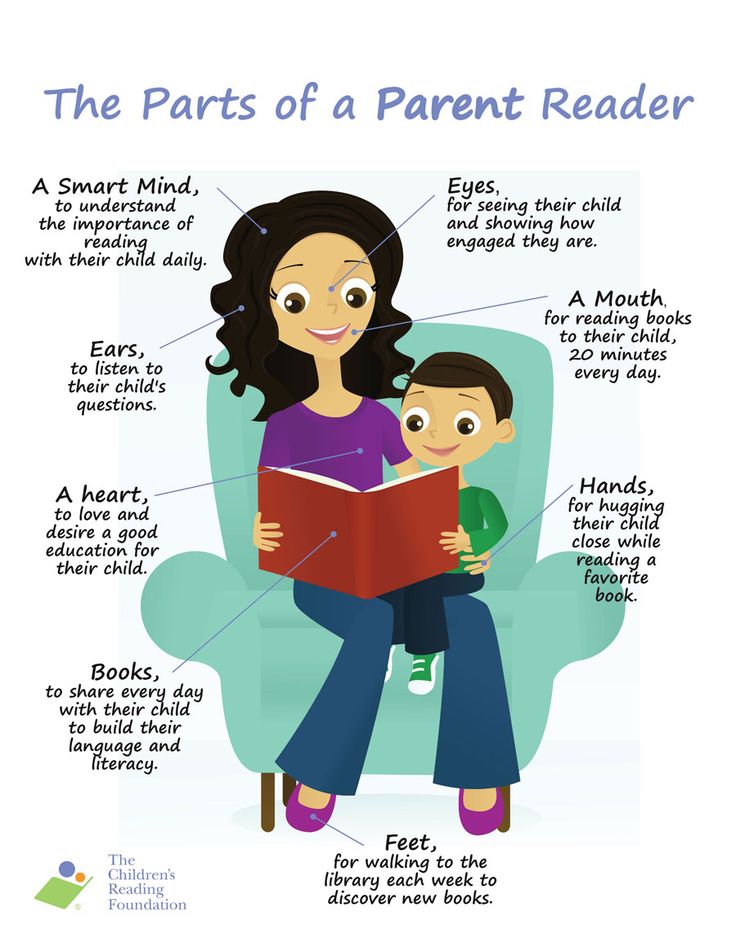
Developing a special bond with your child
It goes without saying that reading to your young child on a regular basis can help you forge a stronger relationship with them. When it comes to children, one of the most important things you can do to positively influence their development is spend time with them. Reading to your children provides a great opportunity to set up a regular, shared event where you can look forward to spending time together. With shared reading, your child will trust and expect that you will be there for them. The importance of trust to small children cannot be overstated.
Reading a favorite book to your children not only helps you bond with them, but also gives your children a sense of intimacy and well-being. This feeling of intimacy helps your child feel close to you, and the feelings of love and attention encourage positive growth and development.
With babies specifically, although they may not be able to understand what you’re saying when you read to them, reading aloud provides a level of invaluable nurturing and reassurance.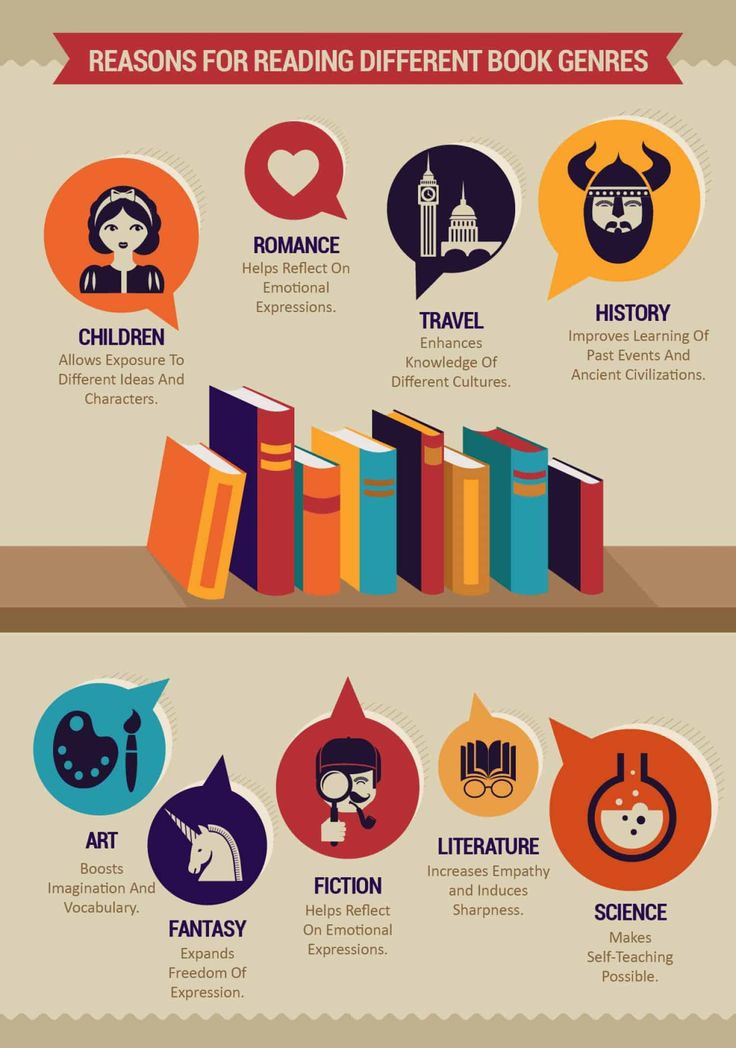 Very young babies love to hear familiar voices, and reading is the perfect outlet to create this connection.
Very young babies love to hear familiar voices, and reading is the perfect outlet to create this connection.
At a broader, more scientific level, it’s the parent-child relationship, nurturing relationships between caregivers and children that set a positive life course. If you are able to read aloud with your child at a predictable, scheduled time that fits with the daily routines of home and school, you’ll be able to provide something constant that they can expect and likely even look forward to.
Reading aloud together and having a shared activity gives you and your child something to talk about, which in turn supports the development of reading and writing skills (per the vocabulary and reading comprehension areas of development mentioned above). And down the road, reading together can be used to discuss real-life experiences and issues. A children’s book can provide springboards to meaningful discussions about many different topics which can further develop a child’s critical thinking skills.
At its core, literature is one of the best ways to help kids understand something without necessarily having to experience it for themselves. Reading to your child helps to expose them to all types of subjects and concepts, building our children’s understanding of humanity and the world around them (ReadBrightly.com).
Increased concentration and disciplineIntroducing regular reading time into your child’s schedule has another benefit outside of creating shared time together: increased discipline and concentration. Very young children rarely sit still for long, and it’s oftentimes difficult to get them to focus. But when you introduce regular reading to your children, you may start to observe a change in behavior. Toddlers may initially squirm and become distracted during story time, but eventually they’ll learn to stay put for the duration of the book.
According to EarlyMoments.com, along with reading comprehension comes “a stronger self-discipline, longer attention span, and better memory retention, all of which will serve your child well when she enters school.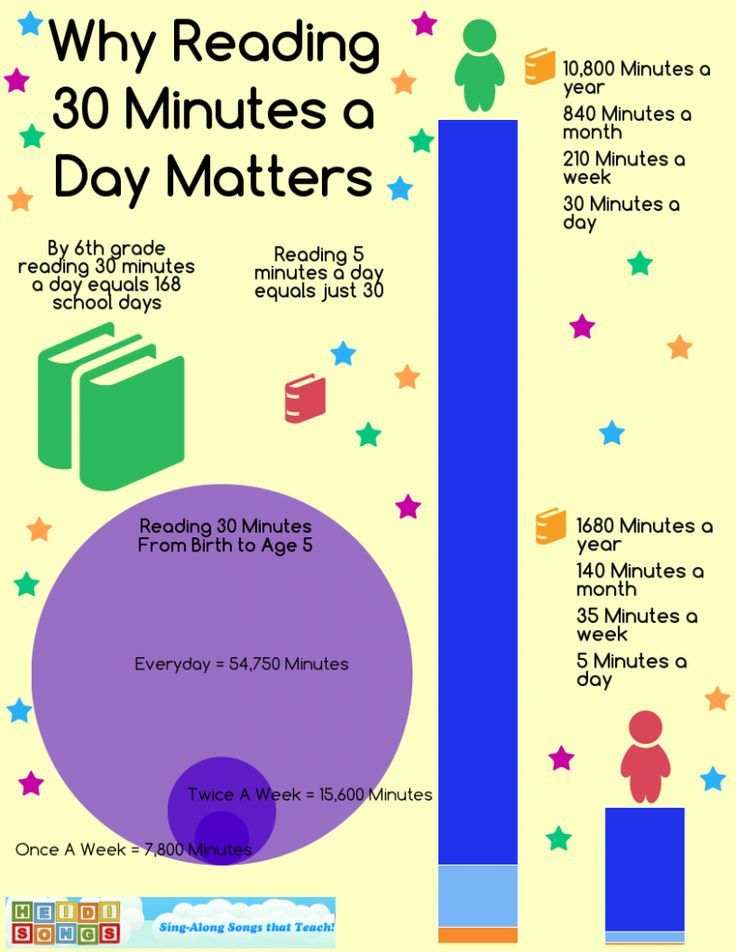 ”
”
Young children naturally have a capacity to dream big and use their imaginations. Reading aloud to your child helps them use their imaginations to explore people, places, times, and events beyond their own experiences. Reading as an imaginative activity can open doors to all kinds of new worlds for your child. By widening your child’s imagination, your child is more likely to dream bigger and act creatively which can benefit they school, work, and life in the future.
Cultivating a lifelong love of readingAccording to Jim Trelease, author of the best-seller, The Read-Aloud Handbook: “Every time we read to a child, we’re sending a ‘pleasure’ message to the child’s brain… You could even call it a commercial, conditioning the child to associate books and print with pleasure” (ReadAloud.org)
This connection between reading and “pleasure” is crucial for success later in life. As personal development coach and speaker Brian Tracy says, your ability to expand your mind and strive for lifelong learning is critical to your success — “Learning is the minimum requirement for success in any field.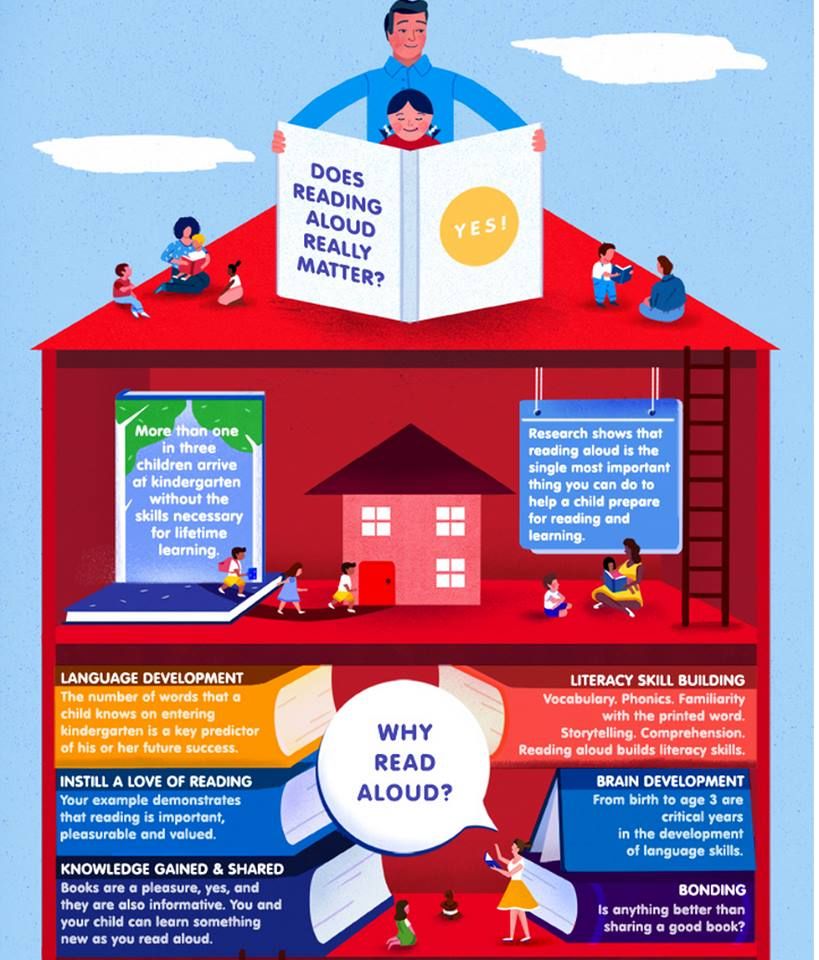 ”
”
Reading is the key for lifelong learning, and if you can instill a love of reading at an early age, then a commitment to lifelong learning is sure to follow. Reading aloud presents books as sources of pleasant, valuable, and exciting experiences. Children who value books are motivated to read on their own, and will likely continue to practice independent reading throughout the rest of their lives.
When it comes to reading to your children, the benefits to your child’s life range far beyond the development of a close bond with them, although that’s certainly one of them. Reading aloud to children is truly the single-most important activity for building these understanding and skills essential for reading success that your child will carry with them all throughout their life.
To learn more about our resources for children, visit our website.
Related Articles
This website uses cookies to improve your experience.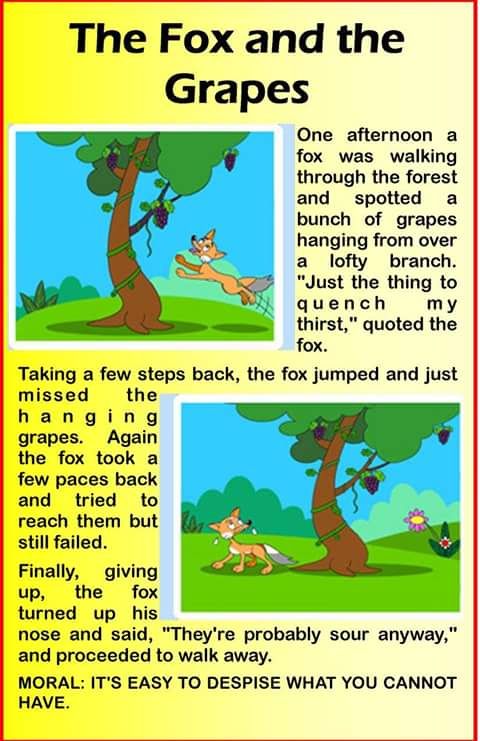 By continuing to use our site you agree to our Privacy Policy. ACCEPT
By continuing to use our site you agree to our Privacy Policy. ACCEPT
Why is reading so important for young children and how to build this habit?
Educational preschool explains the importance of reading and how to inculcate the habit at an early age“Reading is to the mind what exercise is to the body.” – Joseph Addison
Language is the most powerful tool human beings possess. And reading is one of the most fulfilling and effective means to master this tool. The habit of reading, if inculcated at an early age, helps in brain development and enhances imagination. It’s never too early to read to a child and to build this habit. It’s a gift for a lifetime.
Kids ‘R’ Kids, a preschool learning center, shares some of the amazing benefits of reading for young children:
1. Cognitive development
Children acquire a deep understanding of their world and receive background knowledge. This helps them make sense of what they see, hear, and read, which aids their cognitive development.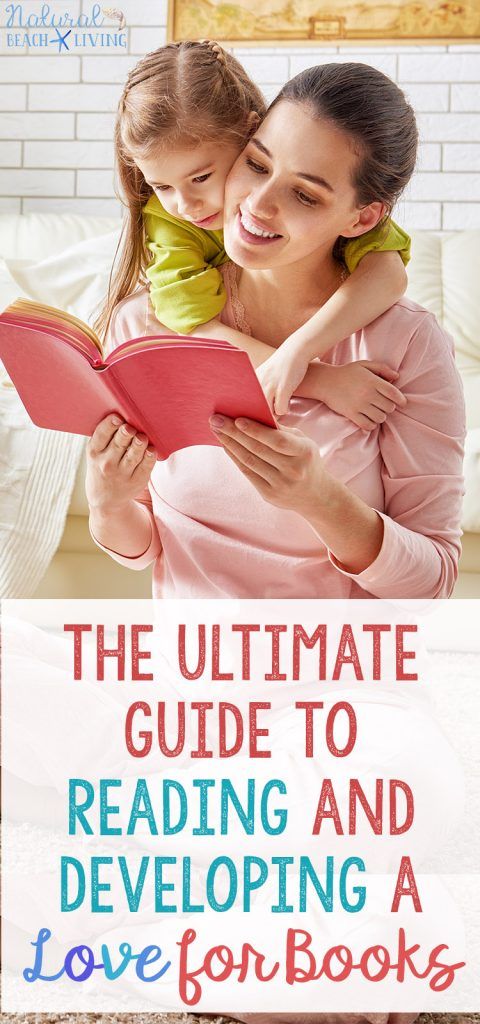
2. Better vocabulary
Reading at an early age not only helps children learn new words and new ways to express themselves, but it also improves their grammar and teaches new concepts.
3. Enhanced empathy
Reading allows children to understand various emotions. This helps in their emotional and social development since they learn to associate their feelings with words and find a way to express themselves better. Books showcase various characters and perspectives which allows children to be more empathetic. The cause and effect concept in stories helps develop their analytical skills besides encouraging curiosity, which is crucial to learning.
4. Bonding between parent and child
Reading time is a beautiful ritual that allows parents and children to connect and unwind. Children love to hear stories from parents while parents find it relaxing to be in a space of fantasy and wonder. Stories trigger conversations and questions that help a child learn and express.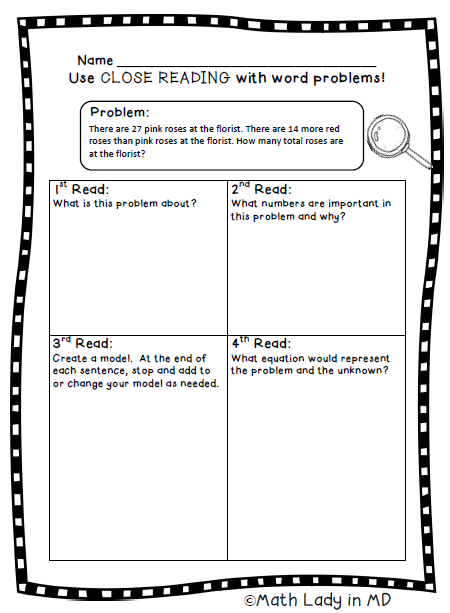 Not only is this ritual enjoyable but it also triggers a positive association in a child’s mind.
Not only is this ritual enjoyable but it also triggers a positive association in a child’s mind.
5. Sparks curiosity
Only a curious mind attempts to learn. Stories are an insight into parts of the world that are yet unknown to children. A variety of topics present possibilities to children and intrigues them. A book on famous artists, butterflies across the world or the universe may inspire children to explore further and learn more. It also allows children to learn about different cultures and people.
6. Develops concentration
Regular and consistent reading helps to improve children’s concentration abilities. As they sit still and listen for long periods, it builds patience that benefits them at school.
7. Creativity
Reading a book encourages the use of imagination. Characters, costumes, buildings, situations, and dialogues create a visual impression while reading. This imagination sparks further creativity that may help build other life skills.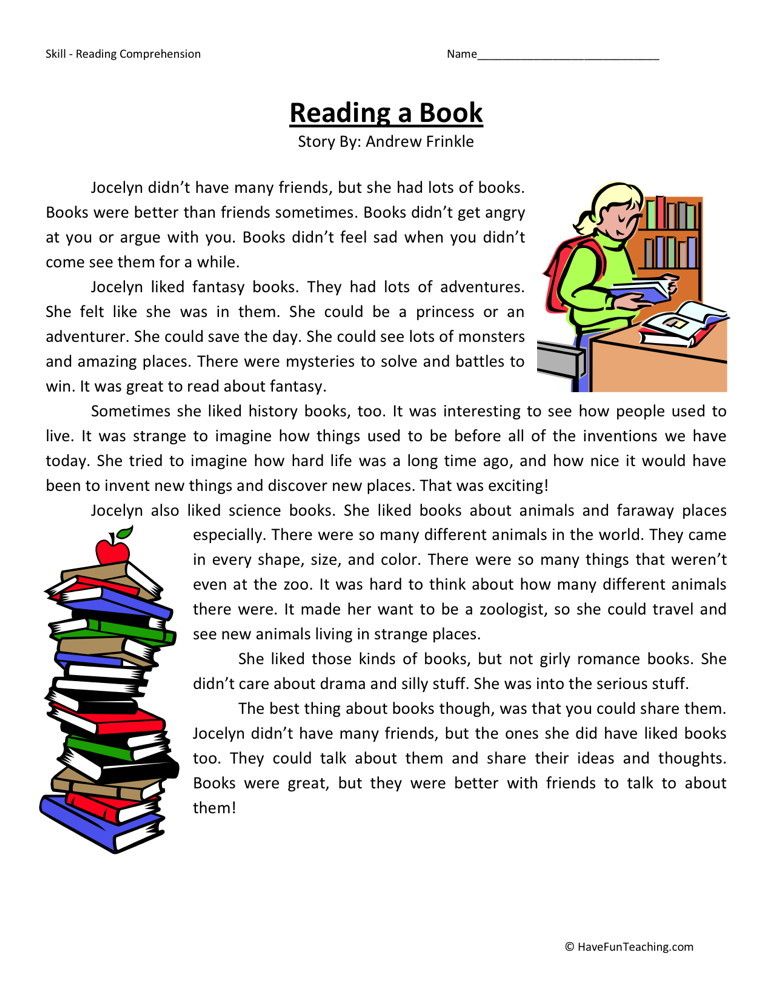
8. Reduced screen time
Children’s brains need stimulation to learn and grow. In times of gadgets and games, children have become addicted to screen time that hampers their brain development. They tend to stay home and not interact with their peers. They become physically unhealthy as they spend hours on screen. On the other hand, books inspire children to learn and develop, and explore the world around them.
How to build this wonderful habit at an early age?At Kids ‘R’ Kids, the curriculum for all age groups (infants to grade 5) revolves around cognitive, physical, literacy, language, social, and emotional development. And story-telling and books are an inherent part of its preschool culture. Here are a few tips on how parents and teachers can build a reading habit in children:
1. Start early
Reading to a young infant may seem like a futile exercise but really isn’t. Children love to hear their parents’ soothing voices and watch their expressions for cues.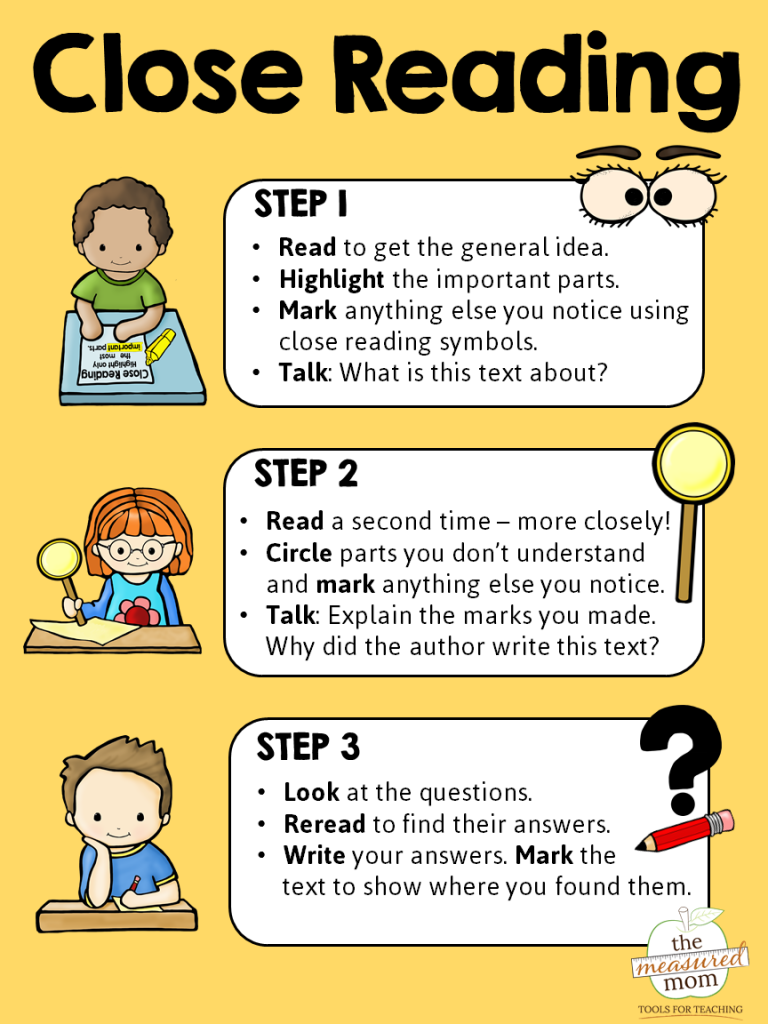 This habit creates a sense of routine and security for them, which will ensure they continue enjoying reading as they grow older. Investing in some cloth books, touch-and-feel books, puppet books, and board books with ample illustrations would be a good place to start.
This habit creates a sense of routine and security for them, which will ensure they continue enjoying reading as they grow older. Investing in some cloth books, touch-and-feel books, puppet books, and board books with ample illustrations would be a good place to start.
2. It’s all in the picture
Young children respond well to pictures and colors. Books with rich illustrations such as pop-up books or books with 3D images are an ideal buy. The association children will make between visuals and the limited text would help them learn new words and expressions during the reading time.
3. Let them choose
Allowing children to pick up books of their choice will always ensure more interest. This ability to choose gives them a sense of power and makes them stick to their decisions.
4. Once more
All children have their favorites and will, without a doubt, ask for the same story repeatedly. This indicates an understanding of the story and the desire to learn more about the story.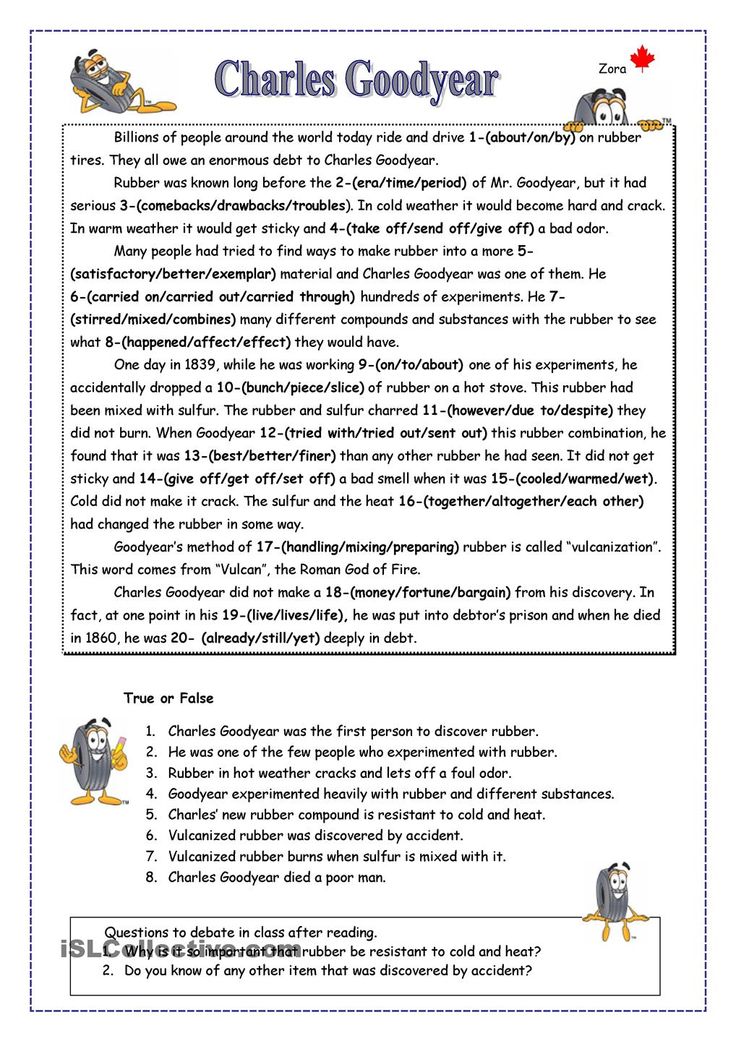 There is an invisible connection they are making between words and real situations.
There is an invisible connection they are making between words and real situations.
5. Set an example
Children learn by imitation. When they see their parents read, they will be curious and will want to imitate. Habits and enthusiasm are always contagious.
6. Learn how kids read
Knowing about the reading skills that a child must possess at a certain age helps a parent choose the right books. This knowledge enables parents to keep track of their children’s development and make amends if the need be. The team at Kids ‘R’ kids would be delighted to make suggestions and provide information on this.
Why Kids ‘R’ kids?The philosophy of “Hug First, Then Teach”, defines every aspect of what Kids ‘R’ Kids, Valrico stands for. Unlike many daycare centers or childcare providers, its methodology is a whole-child approach. It constantly strives to strengthen and encourage every child’s emotional, intellectual, social, and physical well-being through the expertise of its childcare providers and a unique partnership with parents.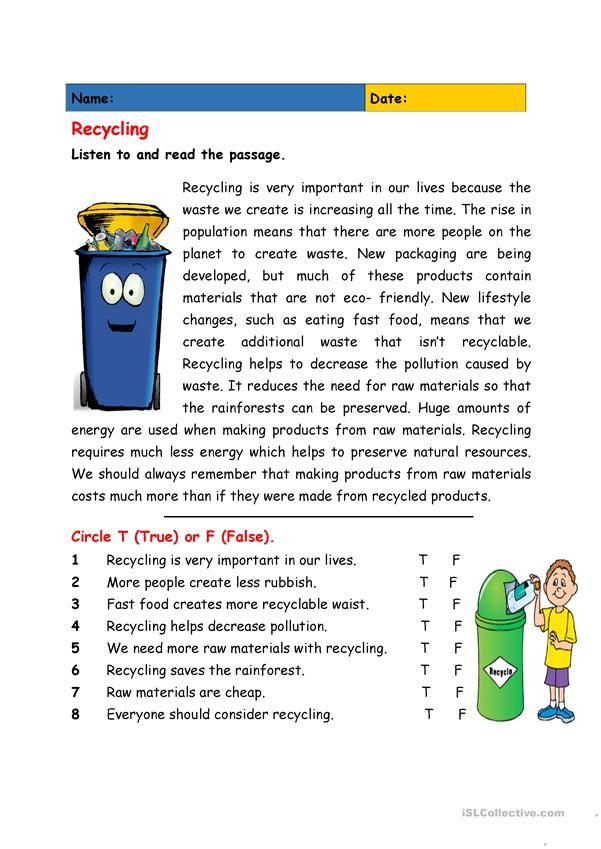
Kids ‘R’ Kids International is accredited by AdvancED®, the world’s largest education community, and the Southern Association of Colleges and Schools Council on Accreditation and School Improvement (SACS/CASI). SACS/CASI is an accreditation division of AdvancED®. This accreditation ensures that the high accreditation standards are met and exceeded.
Call today at (813) 654-7000 to learn more about Kids ‘R’ Kids preschool (Kindergarten to Grade 5) or to schedule a visit.
Why is it so important to read aloud to a child
Until a certain age, there is such a ritual in a child's life as reading aloud. Mom, grandmother, older brothers and sisters read poems, fairy tales, stories about animals to the baby. What is it - a way to entertain a child, instill in him a love of books, or something even more important? Evgenia Andreicheva, teacher of English, postgraduate student of the Department of Foreign Philology at Moscow State Pedagogical University, discusses this topic.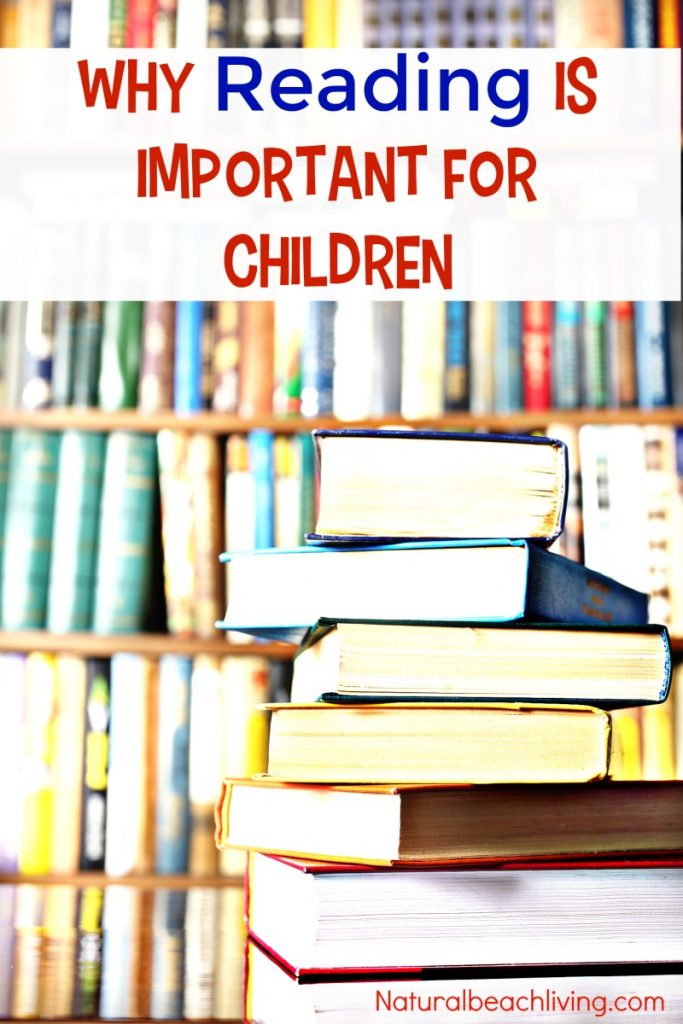
Evgenia Andreicheva, teacher of English, post-graduate student of the Department of Foreign Philology, Moscow State Pedagogical University
Back in the 1980s in the United States, researchers noticed that people began to read less. Then television began to develop actively. Things are much worse now, with the current abundance and availability of gadgets and the Internet. But without reading, the brain of an adult slows down its work, and literature is simply necessary for a child for proper development. Why is it important to read to children?
Why should a child read
Reading is a load on the brain. By reading, we train it in the same way that we train muscles by playing sports. Scientists have long proven that people who read and live longer. What can we say about a small person whose neurophysiological processes are just starting to work actively? He needs reading like air! And while the baby himself cannot read, the help of parents is invaluable here.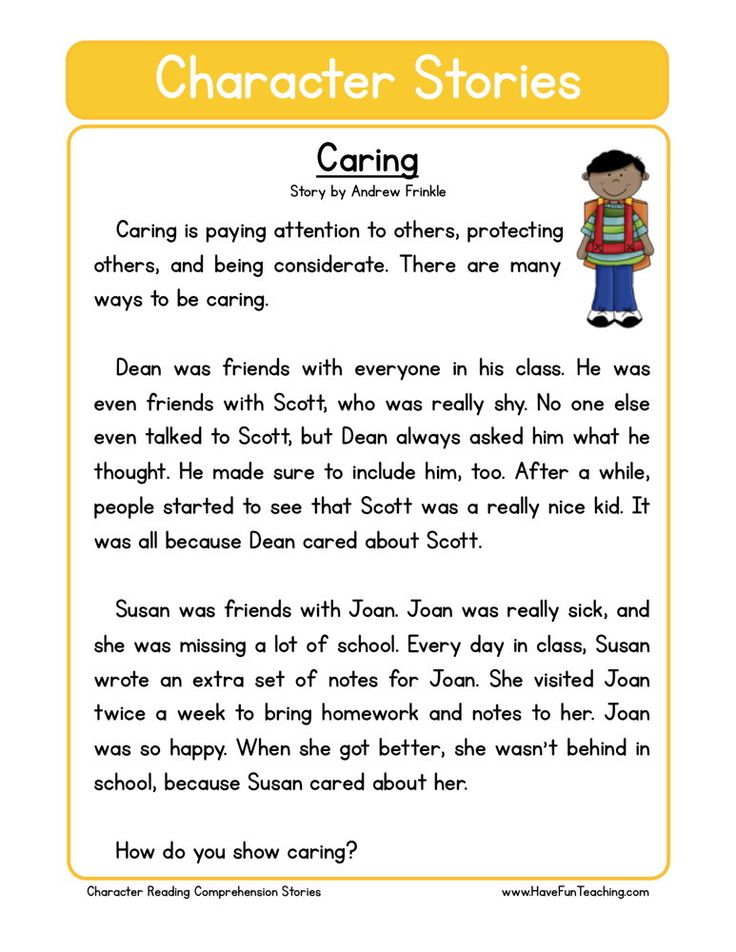 What gives children reading aloud?
What gives children reading aloud?
Speech development
Children to whom their parents read regularly are more likely to start speaking earlier than their peers, and their speech is richer. The fact is that in everyday life we use vocabulary and grammar of a low order, often even vernacular. The books, on the other hand, use a rich literary language, saturated with a variety of speech turns. That difficult grammar that is in books helps children develop logic. Logic is necessary for correct thinking. And formed speech is formed thinking. Thanks to books, the child not only draws new words, learns to pronounce and use them correctly, he also trains logical thinking.
Development of the imagination
Imagination and fantasy are generators of new ideas and non-standard solutions. No cartoon is able to develop the imagination the way a book does. When a child listens to a fairy tale, he mentally draws a picture for himself, imagines what the characters and scenery look like.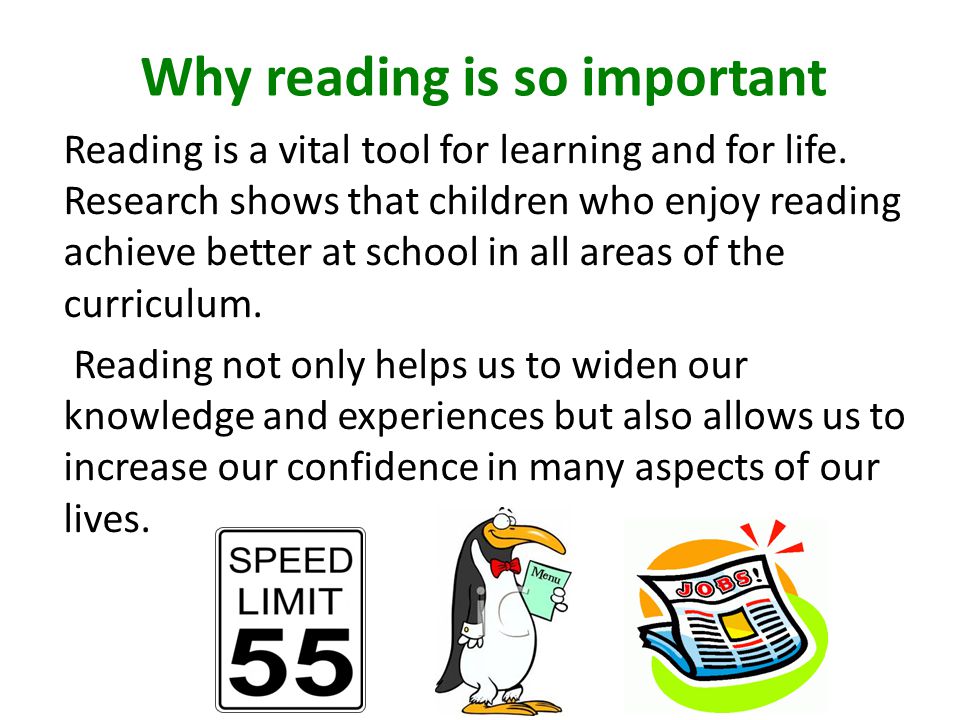 This is a kind of work, and completely independent. If children are offered a cartoon, then they will not be able to be active participants in the process: the action with all the details has already been drawn for them. Children can only be passive spectators.
This is a kind of work, and completely independent. If children are offered a cartoon, then they will not be able to be active participants in the process: the action with all the details has already been drawn for them. Children can only be passive spectators.
Advertisement for independent reading
Any teacher will immediately identify children who read. They better understand the meaning of what they read, correctly formulate their thoughts, build statements logically, write more competently, remember information better. It is worth teaching children to read from the cradle. This is not about early learning to read, but about reading aloud.
Offer a book to your little ones as a toy. Look at the pictures together, comment on them, pronounce the sounds of animals or objects depicted on the pages, invite the baby to turn the pages himself - this is a great exercise for developing fine motor skills. If the kid tears the pages, explain to him calmly that this is not worth doing, and hand him books with cardboard sheets.
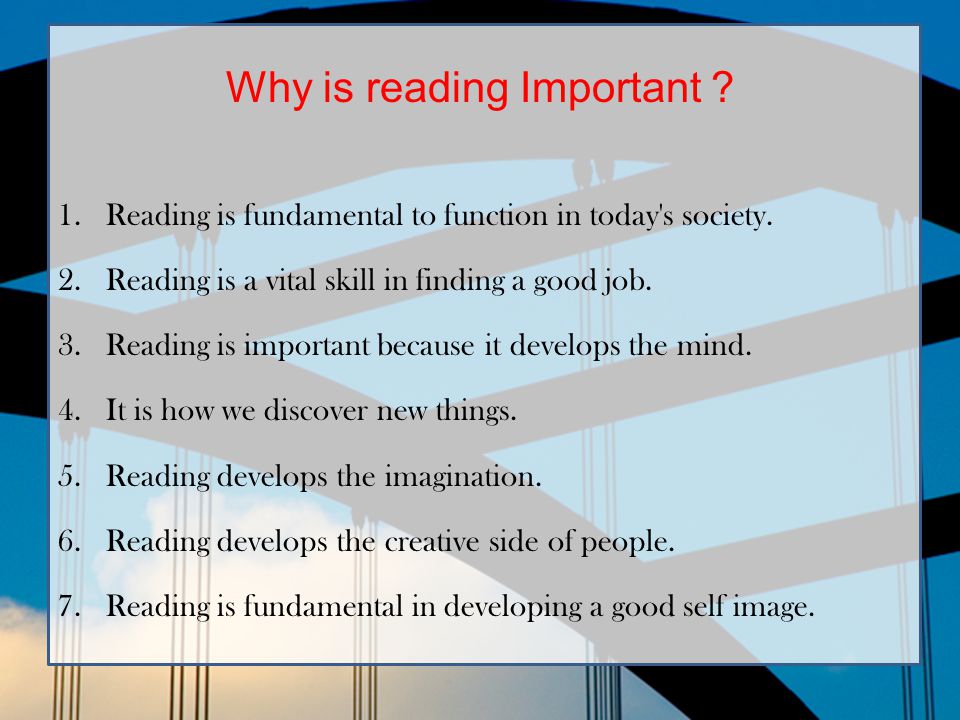
Try not to abuse publications with buttons and sound signals, let the book remain a book, and the kid will enjoy reading. In the future, the child himself will be drawn to literature. At the same time, do not forget to read in front of the children yourself. Choose paper editions.
Listening training
Listening skills, i.e. listening, are now essential. First, many school exams test this skill (the USE in particular). Secondly, it is simply necessary for the harmonious study of foreign languages. Thirdly, we are in contact with people very often, and we need to quickly and clearly understand what we hear. Thus, we need listening in everyday life. It is reading fairy tales, poems and rhymes aloud that gives the child the opportunity to “train his ears”.
Intimacy with parents
Every time a parent reads to a child, magic happens: family unity and unity. Children feel warmth and parental care. Listening to the speech of mom or dad, the child calms down, stress and fatigue during the day are reduced.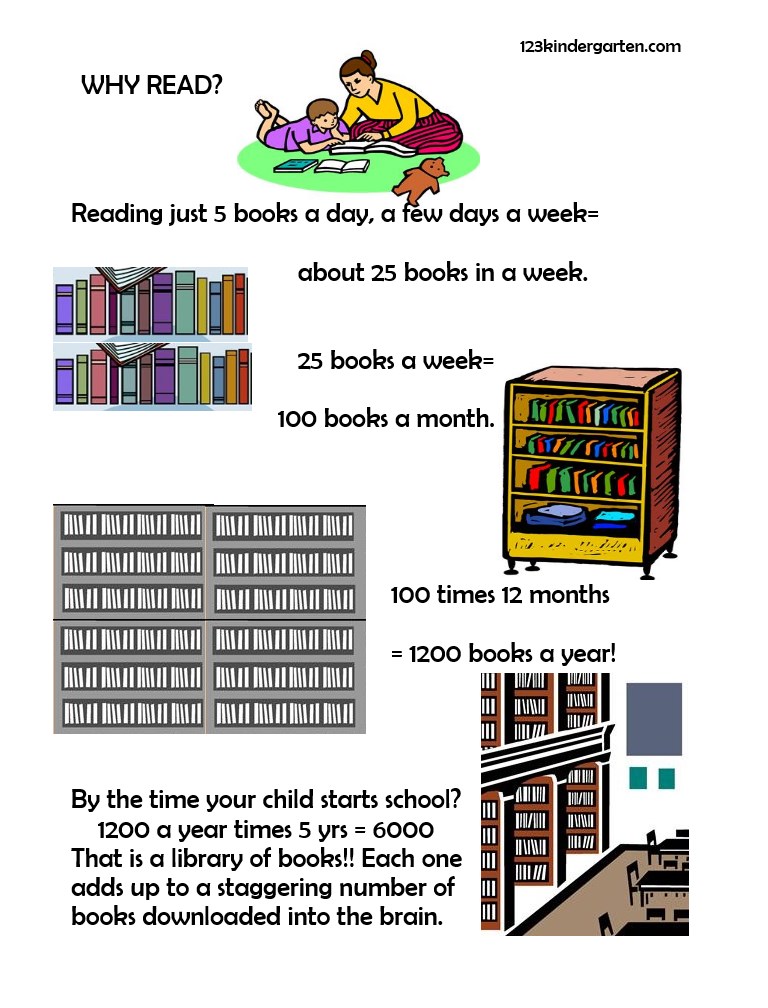 The voice of the parents helps to relax and sleep better. The elders, in turn, also get vivid emotions from communicating with children and literature. Together you live the joyful moments of the plot, sympathize with the characters, try to solve a difficult problem and help the characters. Great moments when you and your children travel together without leaving home.
The voice of the parents helps to relax and sleep better. The elders, in turn, also get vivid emotions from communicating with children and literature. Together you live the joyful moments of the plot, sympathize with the characters, try to solve a difficult problem and help the characters. Great moments when you and your children travel together without leaving home.
Solving many problems
Reading a story to your child can help you "talk" him, especially if you feel that he has problems that he is silent about. Often the kid himself begins to talk about what worries him, having met with a similar situation in a fairy tale. Even if he does not talk about the problem, he will hear from the plot how to solve it. You can also discuss the right and wrong actions of the heroes, this will be clearer than any parental instruction on how to and what not to do.
When and what to start reading to children
Start reading to your baby before he is born. A mother's voice has been proven to calm the baby in the womb.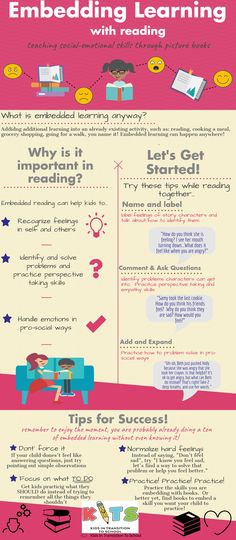 After the birth, continue to read to him. Read to lull the child. A little later, read and show the illustrations.
After the birth, continue to read to him. Read to lull the child. A little later, read and show the illustrations.
At six months , the baby will listen with pleasure to small, unpretentious works based on rhymes or repetitions. These include "Turnip", "Cockerel, golden comb" and other nursery rhymes. In the year , a child can be offered short fairy tales, works by Korney Chukovsky, poems by Agnia Barto. Closer to two , you can move on to longer tales by Vladimir Suteev or Eduard Uspensky. Starting from the age of three , you can significantly expand the children's home library, supplementing it with long fairy tales or large works divided into chapters. These are works by Sergei Kozlov, Vitaly Bianchi, Sofia Prokofieva and other famous writers.
Choose fairy tales according to your child's interests. Let your library be diverse. Be sure to pay attention to the illustrations. They should be colorful, contrasting and of high quality.
Try to choose books in which the text and illustrations match on the spread. If a child cannot sit and listen to a fairy tale calmly, give him the opportunity to change position, crawl, and so on. Do not constrain his movements: preschool children are restless due to their psychophysical development.
Read the same story as many times as the child asks, this is his comfort zone. Perhaps with her help he is working on some situation, or maybe he just really likes the illustrations. Do not deprive him of positive emotions. Do not impose your choice of a fairy tale on a child, leave this right to him.
How to read to children
This should be done thoughtfully and measuredly, your reading should not be formal. Give yourself to the process with all your heart, put meaning into your speech. Read, imitating different voices and intonations. Let the sound even be hypertrophied and slightly grotesque. Emphasize key points, slow down and speed up, sometimes go into a whisper.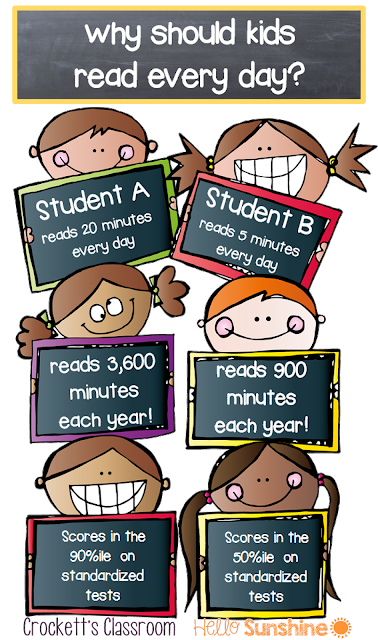 Sometimes stop on purpose, get distracted by closing the book, and ask the child to remind you what you read about and where you left off. Emphasize those sounds, the pronunciation of which causes difficulties for the child.
Sometimes stop on purpose, get distracted by closing the book, and ask the child to remind you what you read about and where you left off. Emphasize those sounds, the pronunciation of which causes difficulties for the child.
Try to discuss the illustrations and be sure to talk about what you have read. Ask the child's opinion about the fairy tale, characters, actions. Ask what he would do in this or that situation. Make reading your daily family ritual. Read to your baby before bed or when you need to calm him down a bit. Try not to refuse the child when he asks you to read. And let the book be the best gift for your children!
See also:
“None of the children have tried a turnip and don’t know that a gingerbread man is such a pie”: guests of the “Oh! Children” talked about whether modern children need books
6 comics that are interesting and useful to read
Why read Russian fairy tales to children?
Photo: Yuganov Konstantin, George Rudy/Shutterstock.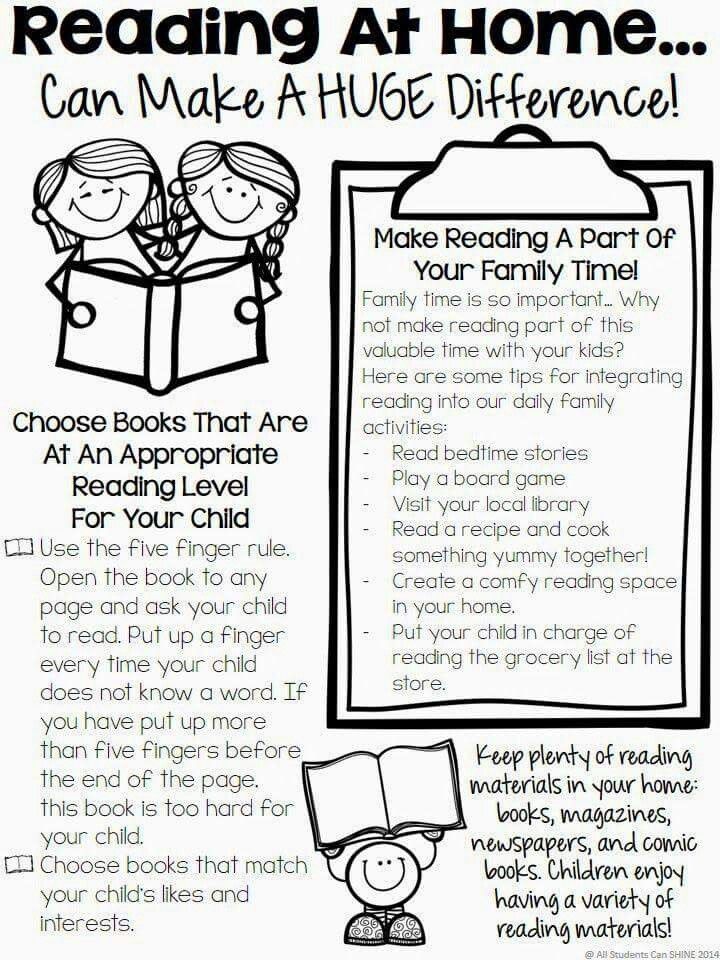 com
com
books
Why is it important to read books to children? 12 reasons from psychologists – Gala Center
Why is it important to read books to children? 12 reasons from psychologists galacentre.ru
(irina.panteleeva) Irina Panteleeva
2019-11-13 2019-11-14 Why is it important to read books to children? 12 reasons from psychologists – Gala Center “If you want your children to be smart, read fairy tales to them. If you want them to be even smarter, read them more fairy tales.” https://www.galacentre.ru
“If you want your children to be smart, read fairy tales to them. If you want them to be even smarter, read them more fairy tales.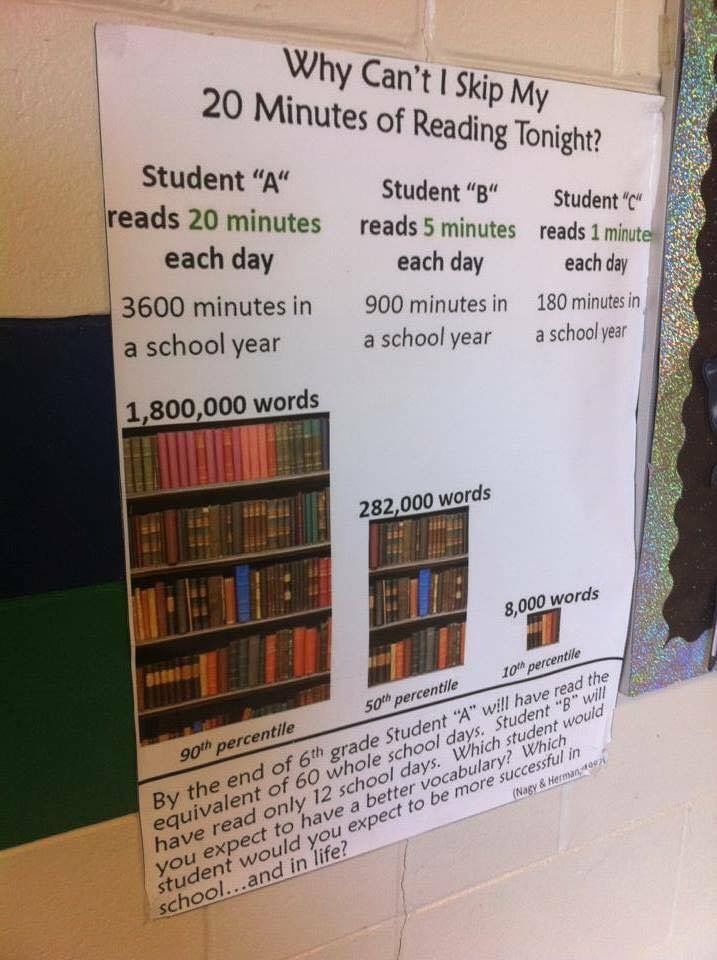 ” Albert Einstein
” Albert Einstein
#1. Strengthens relationships. In today's world, where parents build a career and lead an active social life, and children attend developmental classes and use devices from an early age, it is difficult to maintain closeness. Make it a habit to read a book to your child every night before bed. This is a great way to strengthen the bond with your loved one. You will be able to share your impressions and opinions about the plot, which means you will learn more about the worldview of your little miracle.
#2. Instills a love of reading. Children's books should become part of your family life and as familiar as dinner or an evening bath. The more your child reads with you, the more he enjoys immersing himself in new stories. You instill a healthy habit that will stay with your child for life.
#3. More children's literature, less gadgets. Make reading together a part of your daily routine. Free time, when a child can watch cartoons or play online games, devote to literature.
Free time, when a child can watch cartoons or play online games, devote to literature.
#4. Helps to learn to read aloud beautifully. Reading children's books is an excellent educational activity. Read aloud in turn. This will help your child build confidence and get used to reading for others, which will be a useful skill in school. Such an activity improves pronunciation, expands vocabulary, helps to plunge deeper into the plot.
#5. Develops language skills and expands vocabulary. Toddlers get acquainted with new words, various types of sentence and dialogue construction, styles and ways of presenting information. All this has a positive effect on the further ability to competently and interestingly express one's opinion, and also affects the development of speech and the richness of vocabulary. In this case, the best children's books are classics with a beautiful and simple style.
#6. Improves imagination. While listening to children's literature, a visual picture is created in the baby's head. It represents the appearance of the characters, locations, actions. Imagination is at full capacity. Additionally, fantasy is included. The little ones begin to fantasize and invent their own stories with their favorite characters.
While listening to children's literature, a visual picture is created in the baby's head. It represents the appearance of the characters, locations, actions. Imagination is at full capacity. Additionally, fantasy is included. The little ones begin to fantasize and invent their own stories with their favorite characters.
No. 7. Encourages knowledge. Choose different topics to spark interest in the world around you. Have a new children's book waiting for your child every week. A good choice for schoolchildren is encyclopedias. They will tell about the animal and plant world, planets, the history of mankind. We recommend paying attention to the encyclopedia Rosman.
No. 8. Learn to empathize and empathize. Children have a narrow understanding of the world around them. The task of parents is to show the difference between good and evil, and how to behave with a person in trouble. A children's book is a good tool in this responsible business.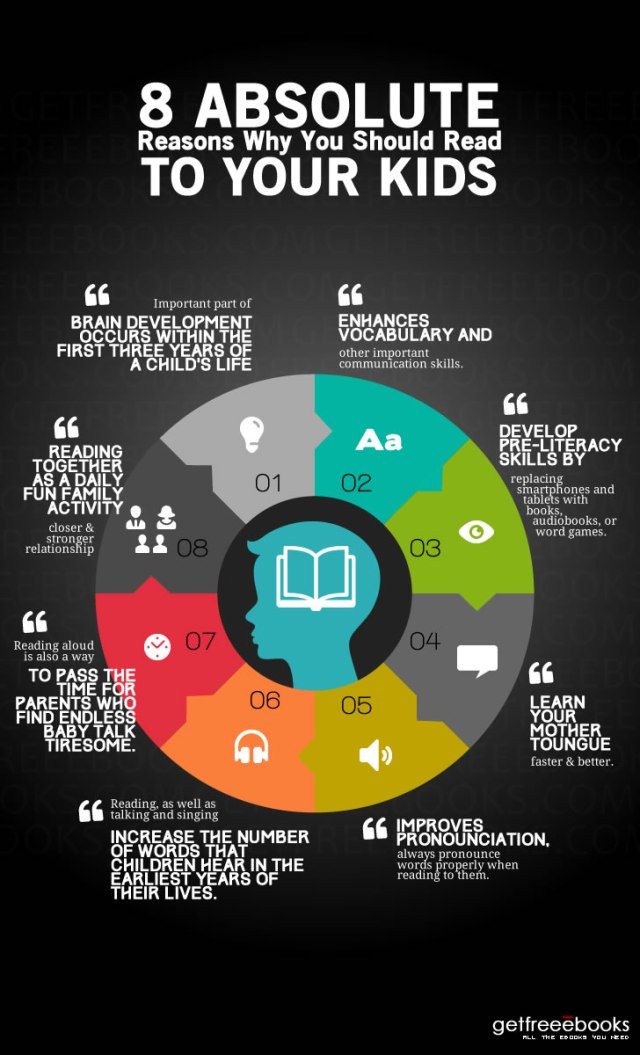 It will help to "be in someone else's shoes", feel the experiences of the protagonist, assess situations, empathize and sympathize.
It will help to "be in someone else's shoes", feel the experiences of the protagonist, assess situations, empathize and sympathize.
№9. Brain training. Listening to children's literature, the child's brain works more than watching TV. And all because the kid has to visualize the plot and delve into the plot.
#10. Improves concentration. Reading a children's book requires focus and concentration. There is no picture on the TV screen to distract from. In the future, these skills will be useful in studies.
#11. Soothes. If a little fidget is naughty and cannot calm down before going to bed, read him a children's fairy tale. Reading interestingly and with intonation, you will quickly calm the baby.
No. 12. Cheers. Literature for children is a fascinating story with funny characters that you won't see on TV. Even when movies are made from books, most people admit that reading was much more interesting than watching. Children's fairy tales give fun leisure, so you should not refuse it because of empty online games.
Children's fairy tales give fun leisure, so you should not refuse it because of empty online games.
How to instill in children a love of reading
#1. Suggest several genres. If your child doesn't like to read, then maybe you made a mistake with the genre. After all, you may like romance, and your son may like mysticism and fantasy. Organize book weeks and come up with a new version each time.
#2. Live the adventures of heroes together. When a children's book ends, the little reader thinks: what would happen if I were in the main character's place? It’s good if after reading the literature you come up with story games. For example, make a Harry Potter wand. Let the delight from the read book last as long as possible.
#3. Be an example. Boys and girls copy the actions of their parents. If you force them to read, and watch TV for hours, nothing will work. Read for yourself, set a good example.
#4. Maintain curiosity. Has your son just finished reading a book about space? Take him to the space museum. Or maybe he just got acquainted with exotic animals? It's time to go to the zoo.
#5. Never force. They can read to please you. But the fact that they are forced to do this will discourage their love of books for life.
#6. Teach children to read old children's literature from the library. Every child should experience the magic of visiting a large library with thousands of books.
#7. Join a book club. This is a great motivation to read. Picking out children's books and then waiting for them to arrive in the mail is a lot of fun.
Have family reading nights. Share stories, opinions about plots. The main thing to remember is that nothing captivates in this life like an interesting book.
